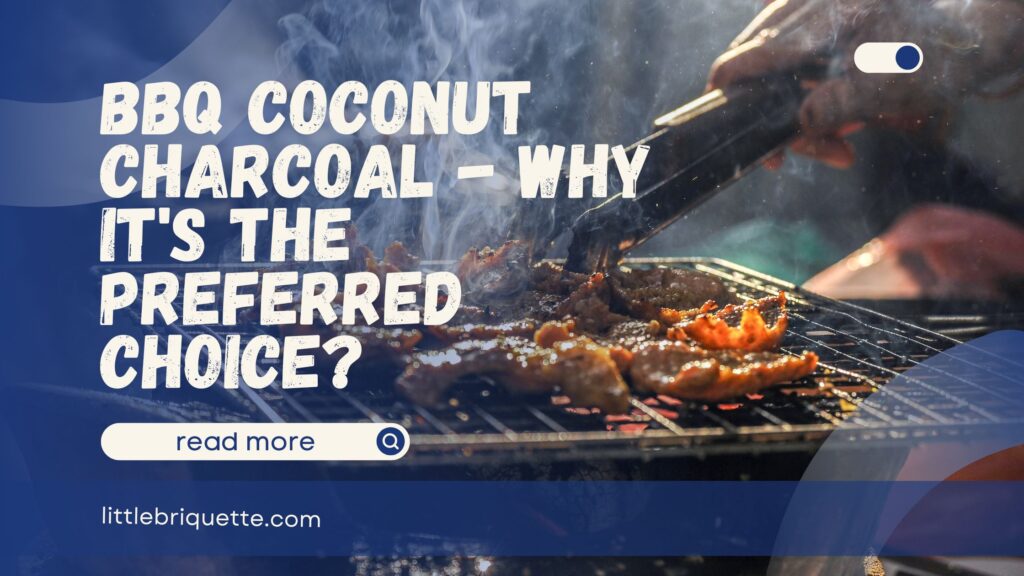Coconut charcoal has long been a popular choice as a fuel for BBQ cooking, not only because of its ease of availability but also due to the unique aroma and flavor it imparts to food. BBQ coconut charcoal is made from coconut shells that have been perfectly carbonized. It possesses distinct characteristics compared to charcoal from wood or other fuels. The history of using this type of charcoal for cooking can be traced back to ancient times across various parts of the world, from Southeast Asia to South America. Many traditional cooks have relied on coconut charcoal for producing delicious and aromatic grilled food. The skill in selecting the right charcoal and understanding how to control cooking temperatures with this type of charcoal is an integral part of a valuable culinary heritage.
BBQ Coconut Charcoal – Why It’s the Preferred Choice?
Coconut charcoal offers several advantages that make it a highly suitable and favored choice for BBQ cooking. Compared to other traditional charcoals, this type of charcoal provides a unique flavor and aroma without producing excessive smoke. These qualities make coconut charcoal the most attractive option currently used. Here are the advantages of coconut charcoal for BBQ:
Pleasant Aroma
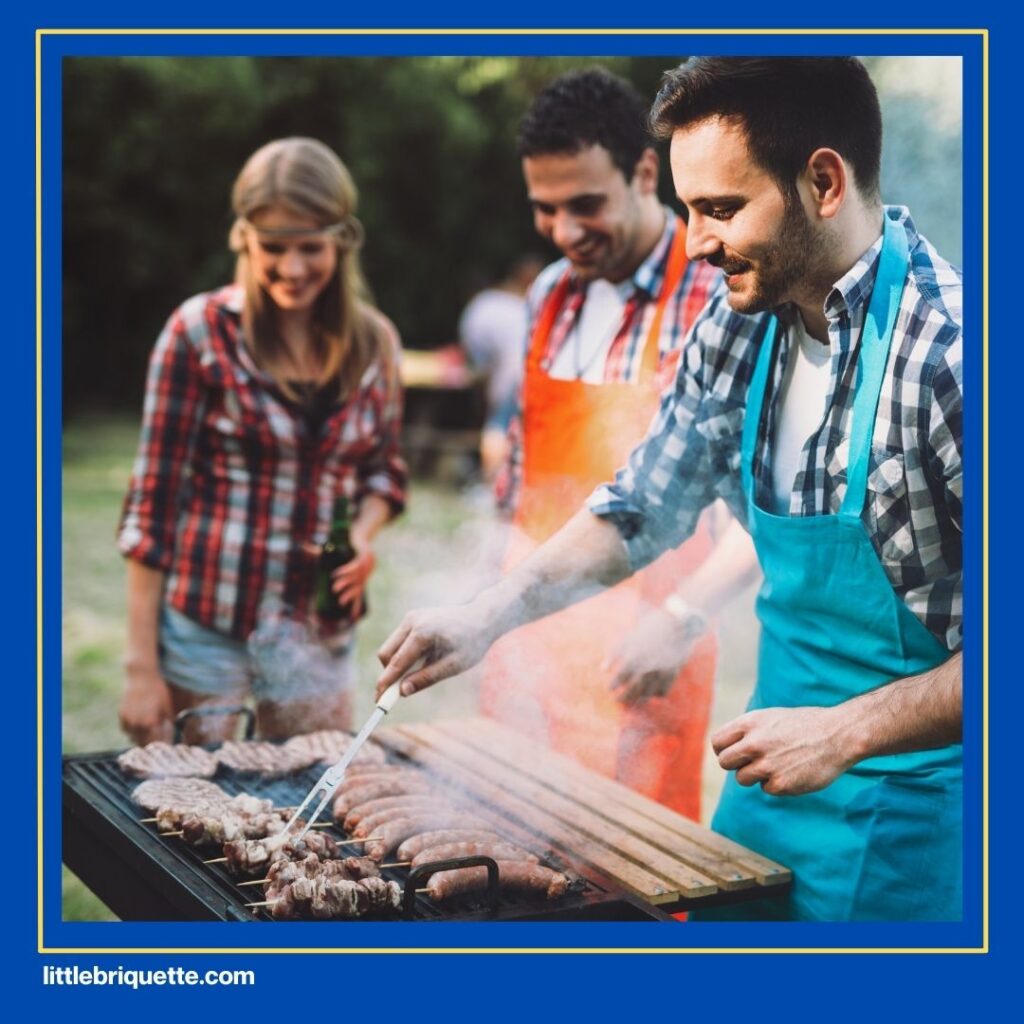
The aroma produced by coconut charcoal when used for cooking, especially in BBQ, is renowned for its smooth and unique subtlety. The smoke from coconut charcoal provides a gentle touch that is not overpowering yet remains captivating, creating a deep layer of flavor on grilled foods. This aroma is often considered more humble and natural compared to charcoals from other fuels, allowing the characteristics of foods like grilled meat or fish to maintain their authenticity without being overshadowed by smoke flavor.
Efficient Combustion
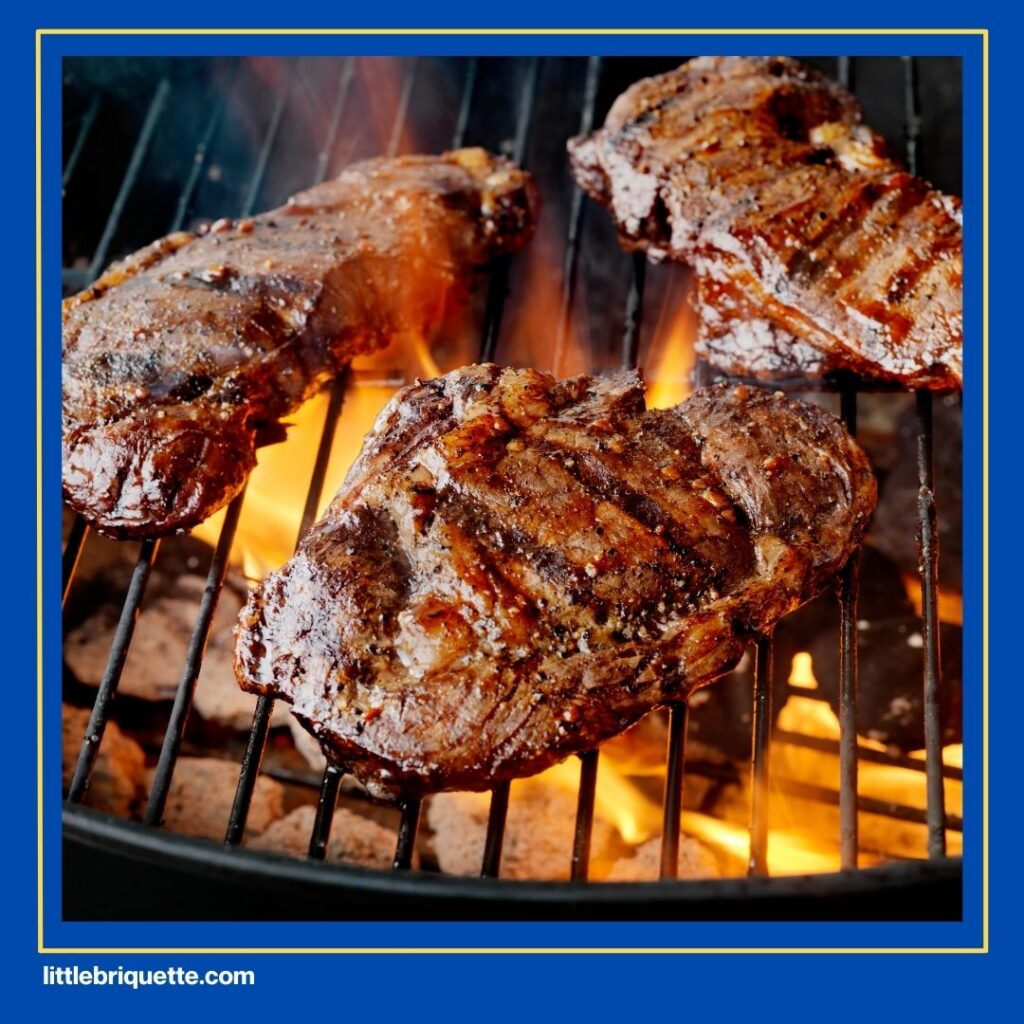
Efficient combustion is one of the key advantages of coconut charcoal in cooking, particularly in BBQ. Coconut charcoal tends to produce stable and long-lasting heat, allowing for better temperature control during the cooking process. This is crucial for achieving consistent and evenly cooked results on grilled or barbecued foods. Furthermore, the efficiency of coconut charcoal combustion means that it can be used for a longer duration in one cooking session, reducing the need to frequently replace charcoal during the cooking process. In this way, coconut charcoal not only offers time and energy savings but also ensures that foods cook perfectly and yield satisfying results.
Subtle Aroma
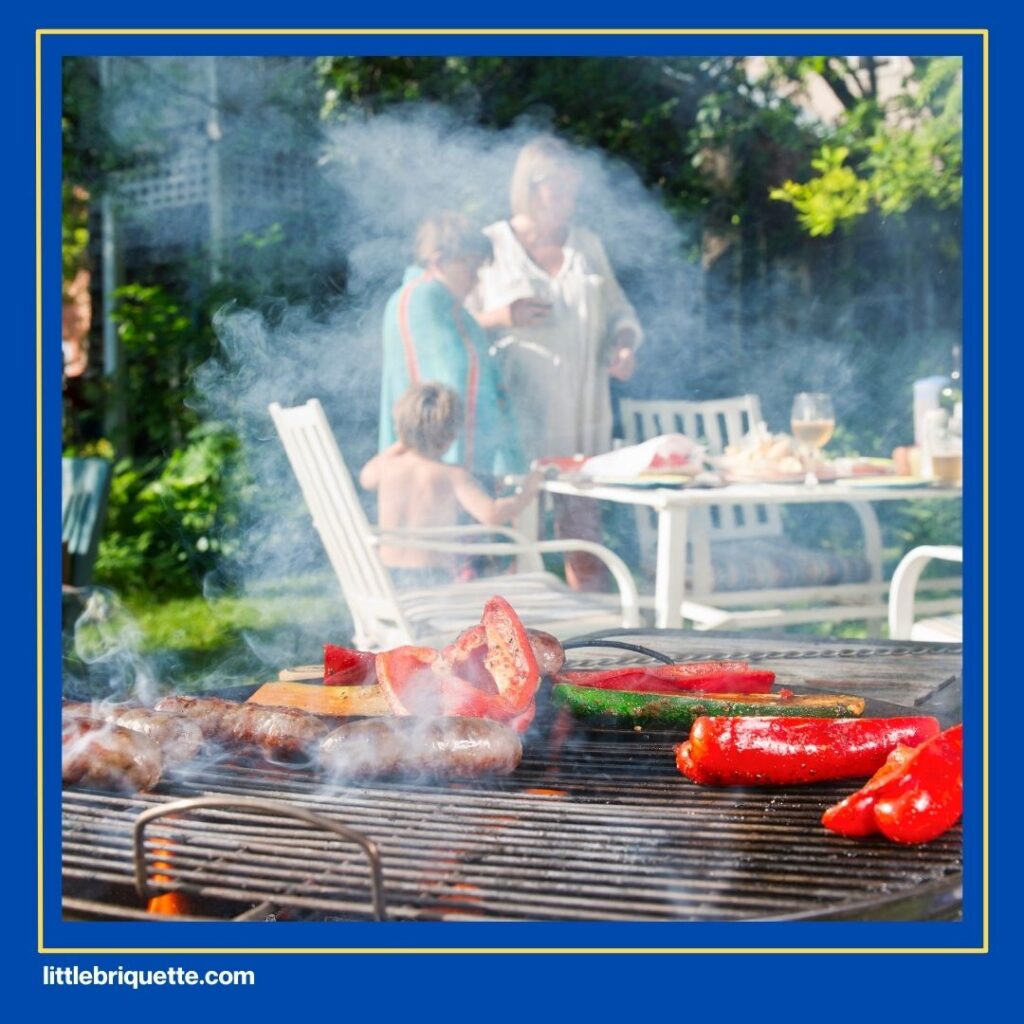
The subtle aroma of coconut charcoal refers to the characteristics of the smoke it produces when used in cooking processes, particularly in BBQ. Coconut charcoal emits smoke with a gentle and not overly dominant aroma, allowing food to absorb hints of charcoal without overpowering the original flavors of the ingredients. Compared to charcoal from wood or coal, which may produce stronger and more dominant smoke flavors, coconut charcoal provides a softer smoke touch. This can add a new dimension to the taste of food without excessively altering it. This makes coconut charcoal an ideal choice for those who appreciate natural food flavors that are not overly influenced by excessive smoke.
Enhanced Flavor in BBQ Coconut Charcoal
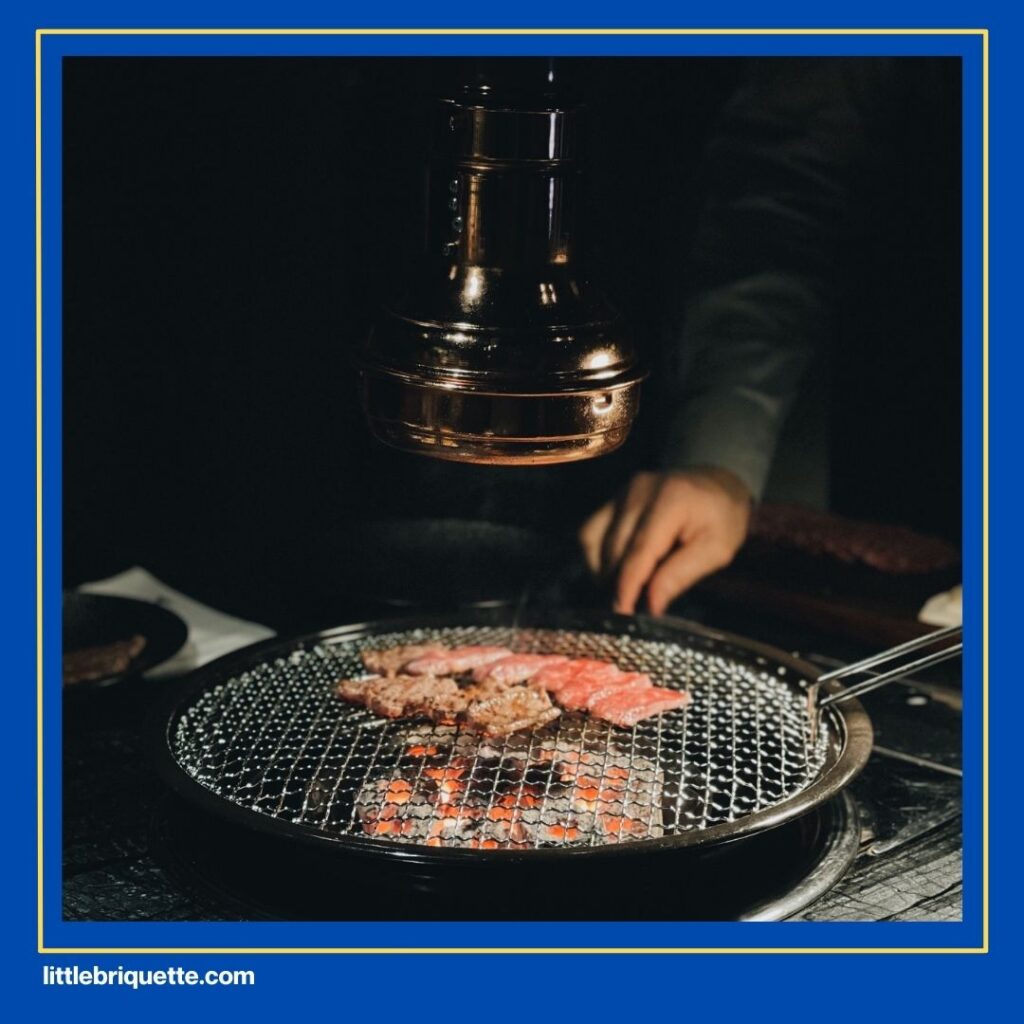
The enhanced flavor provided by coconut charcoal in the cooking process, especially in BBQ, can be explained through several key factors. Coconut charcoal allows for a slow and steady burning process, gradually imparting heat that penetrates evenly into the food. This helps create a better texture and locks in the natural moisture of meats, fish, or vegetables being grilled. Additionally, the subtle aroma from coconut charcoal smoke adds a deep and natural layer of flavor to the food, without overwhelming the original taste of the ingredients. As a result, BBQ dishes cooked with coconut charcoal have a richer flavor profile, with a unique touch that can only be provided by coconut charcoal.
Also Read: The Miracle of Multifunctional Charcoal Made from Coconut Shell
Cooking Techniques with BBQ Coconut Charcoal
To efficiently light coconut charcoal, start by ensuring you have selected high-quality and dry charcoal. To ignite it, you can use the traditional method with some newspapers or dry wood shavings to start the fire. Make sure to arrange the charcoal in a loose cone or pyramid shape so that air can circulate well. Once the fire is lit, allow the charcoal to burn slowly and ensure it glows well before starting to cook.
Temperature control and distance when cooking with coconut charcoal are crucial to ensure even cooking and desired results. To control the temperature, you can adjust the amount of charcoal used and the distance between the charcoal and the food surface. The closer the distance, the hotter the temperature generated by the charcoal, whereas the farther the distance, the lower the temperature. You can also use passive temperature control techniques, such as covering the top to extend burning time or improving air circulation to reduce temperature intensity.
These techniques ensure that you can effectively use coconut charcoal for BBQ, achieving consistent and delicious results with your grilled foods.
Choosing and Storing Coconut Charcoal
Choosing high-quality coconut charcoal is essential for ensuring an optimal BBQ cooking experience. Here are some criteria to consider when selecting quality coconut charcoal:
- Thickness and Strength: Choose coconut charcoal with thick and dense pieces. Thicker charcoal tends to last longer and retains heat better during the cooking process.
- Burning Quality: Ensure that the charcoal you choose has burned completely without any residues of chemicals or other additives. Clean charcoal produces cleaner smoke and a purer aroma in your food.
- Aroma and Flavor: Pay attention to the aroma produced when coconut charcoal burns. High-quality charcoal will emit a gentle and natural aroma, without leaving unwanted smells or tastes on the food.
Once you’ve mastered the technique of selecting quality coconut charcoal, it’s also crucial to know how to store it effectively to maintain its effectiveness and longevity. Here are some storage tips:
- Keep in a Dry Place: Store coconut charcoal in a dry place protected from moisture. Moisture can make charcoal damp and difficult to light.
- Avoid Water Exposure: Keep coconut charcoal away from direct water exposure or rain. Water can cause charcoal to become wet, affecting its ability to burn well.
- Closed Storage: Store coconut charcoal in a tightly sealed container or bag after use. This not only helps maintain the charcoal’s dryness but also prevents it from getting exposed to dust or dirt that can degrade burning quality.
By carefully selecting high-quality coconut charcoal and storing it properly, you can ensure effective use and achieve optimal cooking results in every BBQ session.
High-Quality Coconut Charcoal BBQ Factory
You can get high-quality coconut charcoal BBQ exclusively at Little Briquette, a trusted source that uses Sumatran coconut from its own plantations. Contact Little Briquette at this number for the best BBQ experience.

